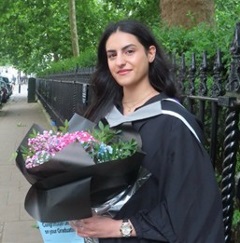
I enjoy baking and playing tennis!
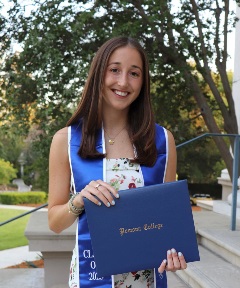
During my summer placement at Imperial, I attended a talk by a PhD student in Professor Roessler’s group. I knew very little about electron paramagnetic resonance spectroscopy (EPR), but was fascinated to hear about what a powerful tool it could be for studying unpaired electron systems, particularly in complex biological molecules. I was drawn to apply for this project as it will allow me to cultivate my interest in EPR, as well as new chemical biology research techniques, within the meaningful context of cancer research. I am also excited by how interdisciplinary the project is, offering the opportunity to learn from three supervisors across different scientific disciplines.
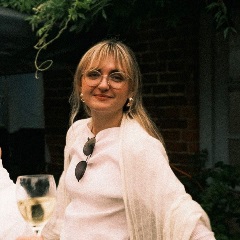
I’ve had a longstanding interest analysing problems relating to human health. In my BSc thesis, I applied the econometrics method of instrumental variables to assess what impact the Supreme Court decision to disallow patenting of discovered genetic sequences might have on follow-on innovations on those genes. I built upon this method in my MSc thesis where I focused on Mendelian Randomization to test for causal relationships between physical and mental traits in humans. Therefore, naturally while choosing projects as a StatML student, the project offered alongside CRUK presented an opportunity to apply fun analytics to a particularly important problem in human health.
Most recently I worked on risk models for credit derivatives in the financial sector, but before that I completed my MSc in Data Science at UCL and my BSc in Economics at University of Bristol.
Expanding my knowledge on Cancer and Machine Learning, meeting lots of passionate people and hearing about the amazing work that they do.
I have been a foreign exchange student in Japan in two different schools and as a result speak a handful of broken Japanese including some Kansai-ben.
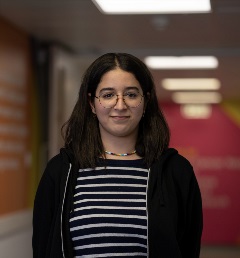
I deeply value working in cancer research because it allows me to use my mathematical and statistical skills to contribute to a meaningful cause. At the ICR, my work was more application-focused, and I found myself missing the chance to explore statistics at a deeper level. I’m hoping that this project will give me the opportunity to return to more fundamental research while staying closely connected to cancer research.
Before joining the programme, I worked as a Data Scientist at the Institute of Cancer Research (ICR) in London.
During my MSc thesis, I really enjoyed doing research, but the time constraints made it feel somewhat limited. I’m excited to return to it with more time and freedom to dive into the areas that fascinate me. I’m also looking forward to connecting with others who share the same passion for this field.
I’m the world’s number one hater of mint chocolate.
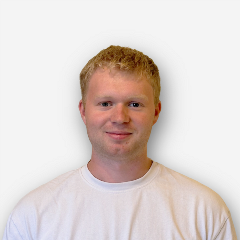
Before I joined the CRUK CSC-StatML CDT Programme, I was studying Physics at the University of Cambridge. In my master’s I was investigating deep-learning architectures for automating image segmentation of CT scans and predicting treatment response in ovarian cancer patients.
I was drawn to the CSC programme as it will allow me to collaborate with academics from a wide range of fields. This method of working appeals to me as it fosters innovation and the exchange of ideas from many disciplines. I am looking forward to improving my knowledge of cancer biology while simultaneously building on my technical machine learning skills.
I love to play guitar in my free time.
.tmb-medium.jpeg?sfvrsn=df4c7292_1)
My master’s project examined the immunology of inflammatory bowel disease (IBD), so I am excited to be investigating adaptive T-cell immunity in colorectal cancer, where IBD patients form a distinct subgroup. By modelling clonal dynamics during cancer progression, I’m particularly interested in my project’s potential to help elucidate mechanisms of immune evasion and therapeutic resistance.
I received my BSc in Biomedical Sciences with Professional Experience at the University of Reading. After obtaining an MSc in Molecular Medicine at Imperial College, I worked in pharmaceutical operations.
In joining the CSC programme, I will benefit from the expertise of ICR's diverse academic community, gaining an exceptional opportunity to strengthen my research skills. Although I anticipate the challenge, I am particularly eager to develop my mathematical skills, which I have not formally studied since my GCSEs, as maths underpins all scientific fields.
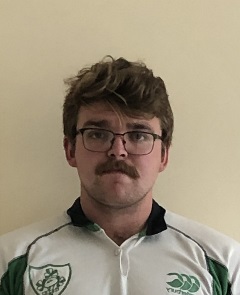
I was studying theoretical physics at Trinity College Dublin.
I’m looking forward to expanding my knowledge outside of the world of physics and working with people from different disciplines.
I used to have a mullet and I’m deceptively good at skipping (the type with a rope).